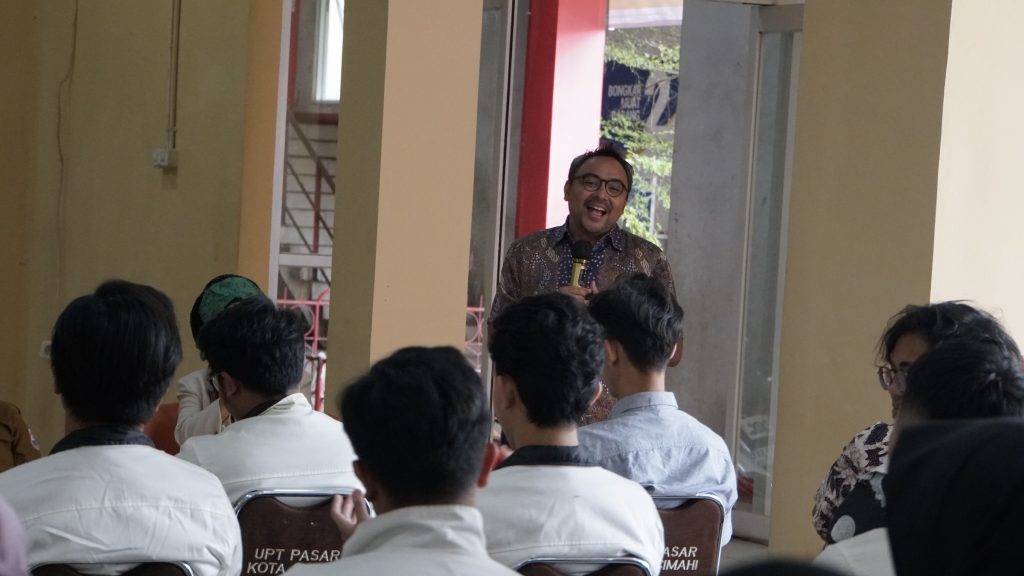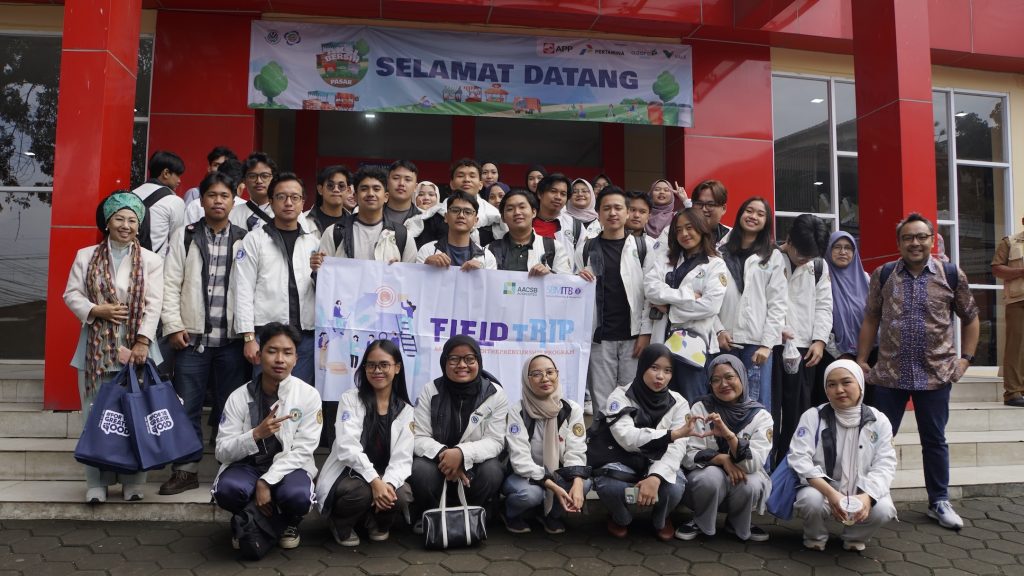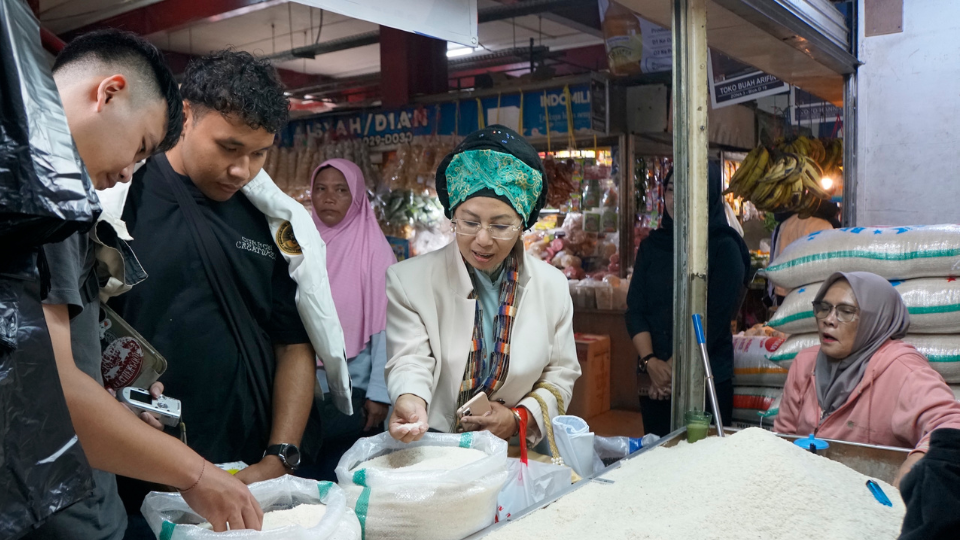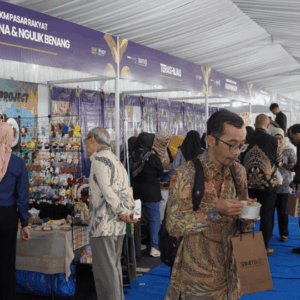Societal impact is not merely a form of community service. At the SBM ITB, it is embedded in experiential learning, an approach that emphasizes direct engagement with real-world complexities. One of its key implementations is through the Business Scale-Up course, coordinated by Sonny Rustiadi, Chair of the Undergraduate Program in Entrepreneurship at SBM ITB.
The Business Scale-Up course is structured around two major projects, one before and one after the mid-semester exam. Typically, students collaborate with SBM ITB’s supported business communities, such as Ecobiz. However, this year, the program expanded through coordination with the Societal Impact team, resulting in two main project sites: Pasar Cimindi and Pasar Atas in Cimahi and ecotourism development in Cirata.
In these projects, students are assigned to assess the real conditions of market traders and devise scale-up strategies that are both targeted and sustainable. While digitalization is a key focus, it is not the only one. Students are first expected to observe and evaluate the problems and needs of local partners before designing appropriate interventions.
Not all solutions are high-tech. Tools like Excel or basic spreadsheets, which students may view as trivial, have proven to be important breakthroughs for the traders, enhancing their financial and operational awareness.

“One of the most interesting aspects of student intervention is supporting digitalization and introducing effective marketing strategies, leading to cases where traders received orders from Malaysia. This progress is concrete proof of the program’s significant impact,” Sonny said in Bandung (29/4).
Beyond offering solutions, students are assessed on their adaptive communication skills and understanding of the social context of the traders. They cannot approach the Cimahi community solely through an “ITB lens.” Adjustments in language, culture, and interaction styles are necessary. The ability to remain flexible and agile across differences in age, education, and habits is an essential criterion for evaluating student presentations and final grades.
“What may seem normal to students, like using spreadsheets, can be extraordinary for traders. This experience teaches students humility and shows that true impact comes from genuinely understanding the people we aim to help,” Sonny added.
Following the Cimahi project, SBM ITB continued its intervention in Cirata, focusing on developing ecotourism. This project is supported by Bank Indonesia as the main stakeholder and PLN as the operational manager of the dam.
Currently, students are conducting social mapping and identifying the potential of local communities while introducing entrepreneurial concepts as a foundation for building sustainable tourism destinations. SBM ITB’s goal is to develop one village each year. Sonny emphasized that this program provides valuable learning experiences for students and tangible contributions to local communities.
“We design experiential learning that reflects the real complexity of the field. The goal is for students to gain theoretical knowledge and soft skills like negotiation, communication, and adaptability.”
Sonny hopes that this initiative will go beyond classroom learning. The partnerships with stakeholders, including the Ministry of Trade, Bank Indonesia, PLN, and local governments, are expected to provide a strong foundation for long-term impact. For stakeholders, the desired outcomes include market growth, increased sales, and enhanced capacity for the participating business actors.






